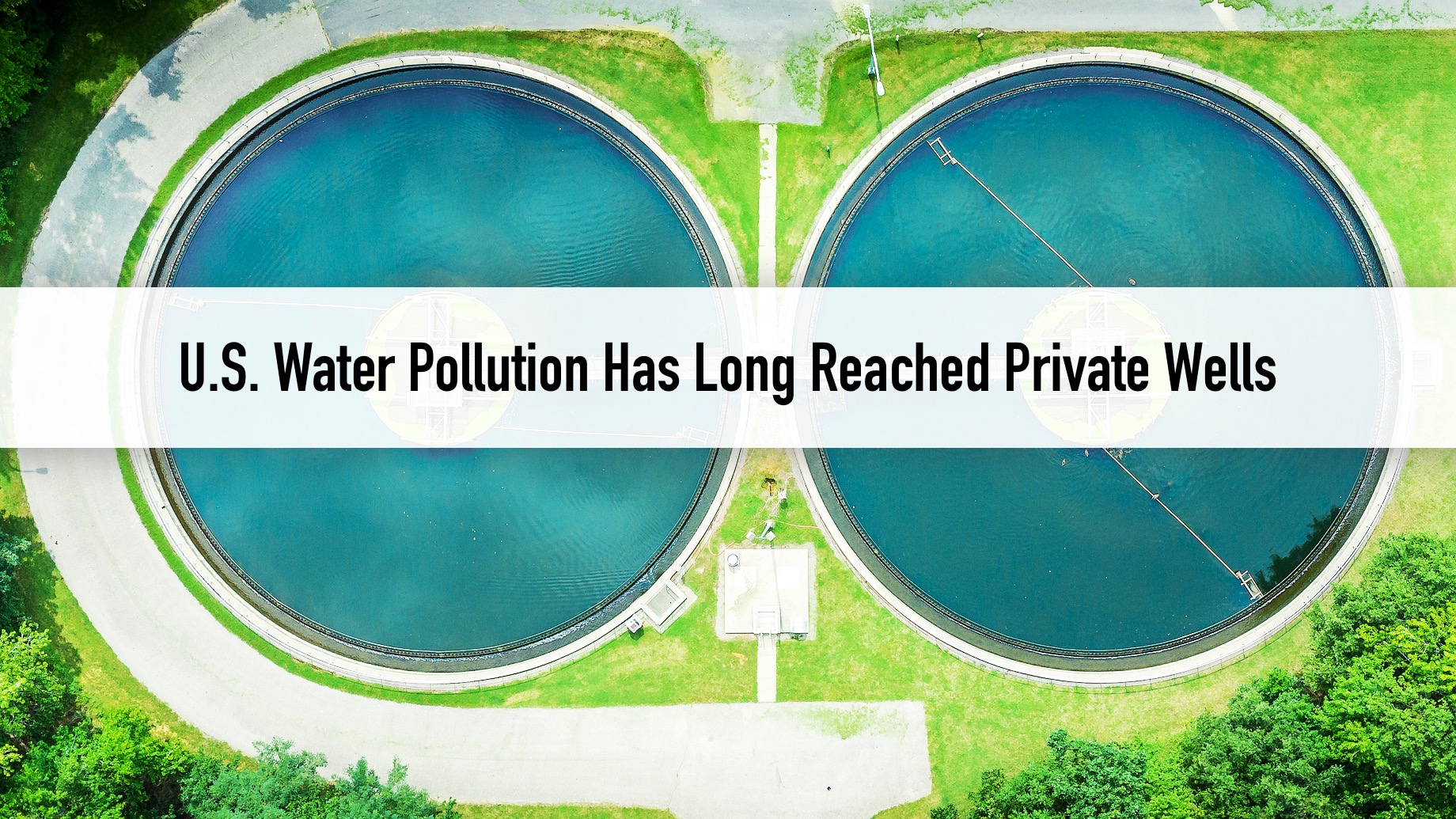
It’s common knowledge in the United States that there are growing problems in our water supply caused by mismanagement, poor infrastructure, and widespread pollution. What most people don’t realize, though, is that even private wells aren’t safe and often contain dangerously high amounts of contaminants.
Problems with U.S. Private Wells
According to the CDC, some 15 million Americans use private wells to receive their drinking water. These wells use groundwater sources, but they are not covered under the Federal Safe Drinking Water Act, so the government isn’t legally obligated to check for violations. Quite the contrary, private wells’ owners are responsible for the upkeep of their water supply quality.
However, the quality of water across private wells ranges from being relatively healthful to downright dangerous for consumption. Many problems range from toxic substances as a result of agriculture runoff and industrial waste disposal to the unfettered growth of hazardous microorganisms.
Poor general infrastructure in undeveloped and rural regions combined with large discharges of untreated sewage has had other detrimental effects on U.S. groundwater, rendering it unsafe in badly affected areas. The lack of systematic private well water testing has made it difficult to quantify pollution across private wells. Still, you can be relatively sure that pollution is widespread enough to touch most private wells in the country at least to some degree.
Common Contaminants in U.S. Private Wells
If you happen to rely on a private well, there’s a very good chance that your water supply has been tainted by one or more of the following contaminants – to some extent.
Malicious Microorganisms
Bacteria, parasites, and viruses thrive in untreated water and human sewage. They are one of the most common contaminants in private wells due to lack of maintenance. If your well hasn’t been treated with chlorine, the odds are that there is some level of microorganismic contamination.
Nitrates
Nitrates are particularly common in groundwater sources near agricultural areas since they originate from chemical fertilizers used on farms. Water runoff that contains large amounts of chemical fertilizers is especially dangerous since nitrates convert to nitrites once they enter the human body.
High nitrite blood levels are particularly dangerous for infants who suffer from decreased breathing abilities and may fall ill and die shortly after excessive ingestion of nitrites.
Heavy Metals
Heavy metals such as lead, copper, and iron can enter your drinking water due to waste produced from industrial activities such as petroleum refinement or mining. These metals can cause various health problems ranging from developing cardiovascular disease to causing liver damage and even cancer.
In the case of lead, another common pollution source are outdated plumbing systems directly containing the neurotoxin.
Organic Compounds
Many products used for agriculture, industrial production, and domestic cleanings such as pesticides, dyes, sealants, and disinfectants contain organic chemicals. These chemicals seep into groundwater after use or are dumped into groundwater sources as industrial waste to end up in private wells.
Consumption of water laced with organic compounds can result in numerous health issues ranging from damage to the nervous system to multiple allergies.
Fluoride
Fluoride is frequently added to water to assist in improving dental health, and it is a beneficial mineral, but excessive amounts of fluoride can result in skeletal problems: Excessive fluoride consumption can cause pain in your bones and joints, as well as discoloration of your teeth.
Fluoride is also naturally present in most groundwater sources, so when additional sources of fluoride are dumped into the water supply because of industrial practices, it can very easily lead to excessive amounts of the element.
Radionuclides
Radionuclides are produced from mining operations and nuclear power generators, although they could also be naturally present in groundwater sources. Radionuclides are radioactive forms of uranium and radium, so they are carcinogenic (cancer-causing) and can cause kidney problems.
How Can You Improve Your Private Well’s Water Supply?
The only way to know definitively if your private well water contains any of the listed contaminants is to have it tested by a professional.
After your water is tested and you’ve determined what contaminants, if any, are present, there are different solutions you can use to make your water safer. Usually, the best would be to install a well water filter system.
Well water filter systems can remove most of the common contaminants from water supplies making it much safer overall. Still, if your contamination is milder, such as an excess of microorganisms but not other pollutants, you could also use chlorine treatment. Bottom line, how you should treat your well water supply to make it safer for usage should primarily depend on the type and extent of the contamination.